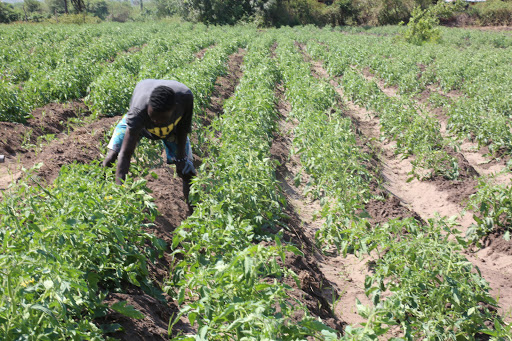

Irrigation PS Ephauthus Kimotho has said there is need for more investment in order for Kenya to reach its irrigation potential.
He said in order to meet the country’s irrigation goals, the government has increased budget for irrigation from Sh5 billion in 2015 to Sh23 billion.
The PS spoke at the IWMI strategy launch during CGIAR Science Week at the UN headquarters in Nairobi.
Kimotho noted that while only four per cent of the country’s arable land is currently irrigated, the potential for expansion is vast.
“We aim to expand the area under irrigation to one million acres, approaching 50 per cent of our potential capacity," he said.
The National Water Master Plan of 2013 estimates that Kenya could irrigate up to 3.5 million acres, a significant increase from the current 747,000 acres under irrigation.
Kimotho noted that while Kenya has sufficient water resources, the challenge lies not in the availability of water, but in its economic value.
"The issue is not a shortage of water, but the high cost of extracting it," he explained.
Currently, many smallholder farmers depend on costly diesel-powered pumps for irrigation, which poses a major barrier to the sustainability of community schemes.
In an effort to optimise water use, Kimotho said the government is introducing a new irrigation tariff framework, requiring farmers to pay for water.
This move, he said, is expected to encourage more efficient water usage and reduce wastage.
Furthermore, solar-powered pumps are being introduced as an alternative to diesel pumps, offering a more cost-effective and sustainable solution.
The PS stated that expanding irrigation could be a catalyst for economic growth and job creation, particularly for Kenya's youth.
"This is the right time to take bold action," he said.
"Improving irrigation will not only enhance food security but also combat climate change and create lasting job opportunities."
Mark Smith, the International Water Management Institute (IWMI), Director General said the launch of IWMI’s Transformative 2024–2030 Strategy for East Africa aligns with Kenya’s goals.
IWMI aims to use cutting-edge research and foster regional partnerships to address pressing water and climate challenges.
Smith noted that water is integral to climate resilience, food securityand economic development.
"Through this strategy, we aim to improve water management in East Africa, ultimately improving livelihoods and supporting sustainable development," he said.
Dr Rachel McDonnell, IWMI’s deputy director general pointed out that water is life, water is productivity, water is transformation, and water is risk.
She stressed the need for a holistic approach to water management, recognising its importance for food security, energy, industry, and even tourism.
"No water means no food, and no food means no life," she added.
McDonnell noted the three key strategic areas for IWMI’s work including managing global water risks, addressing global inequalities, and promoting sustainable water management.
"Water risks, such as droughts and floods, are increasing in frequency and intensity," she explained.
"We must adapt to these challenges with innovative solutions such as drought-resilient crops and solar-powered irrigation."
McDonnell also acknowledged the disparities in water access, particularly for women, youth, and marginalised groups.
"We need to ensure equal access to water and create more job opportunities in water management," she said.












